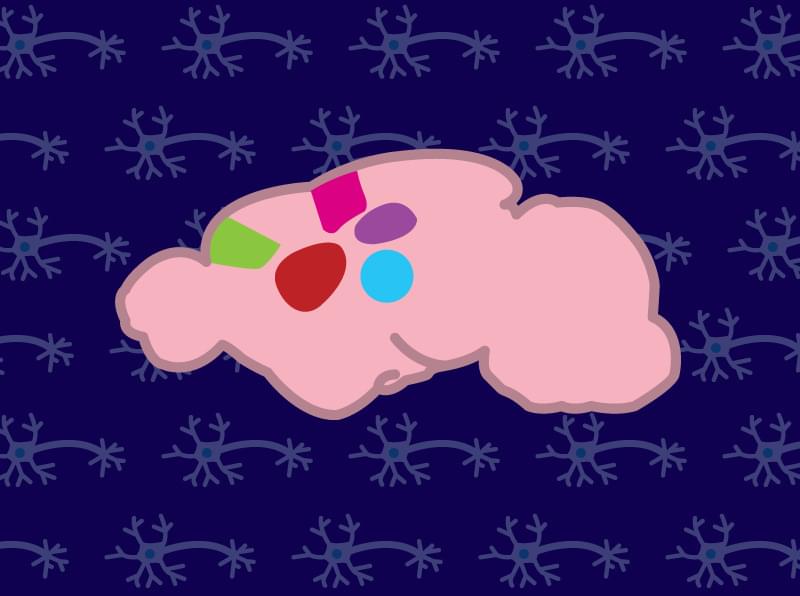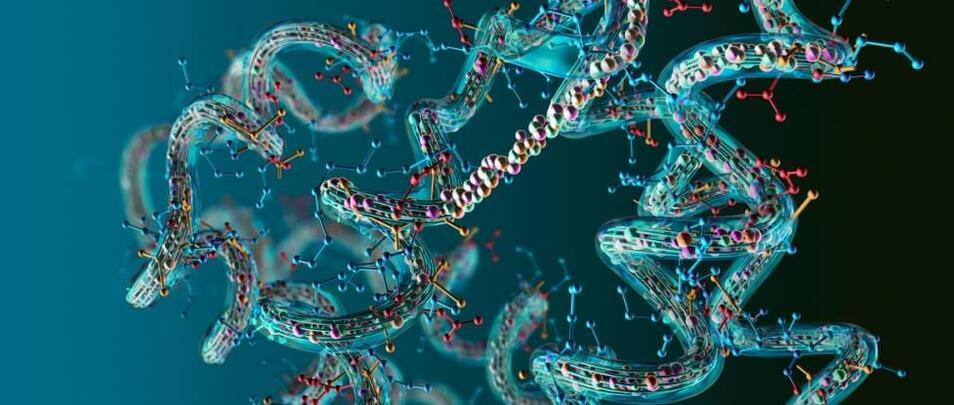A study of a genetic mouse model of schizophrenia supports two long-debated hypotheses, and unveils additional new clues about the biological roots of the disorder.




Mathematicians delight in the beauty of math that so many of us don’t see. But nature is a wonderful realm in which to observe beauty born out of mathematical relationships.
The natural world provides seemingly endless patterns underpinned by numbers – if we can recognize them.
Luckily for us, a motley team of researchers has just uncovered another striking connection between math and nature; between one of the purest forms of mathematics, number theory, and the mechanisms governing the evolution of life on molecular scales, genetics.

Digital information exchange can be safer, cheaper and more environmentally friendly with the help of a new type of random number generator for encryption developed at Linköping University, Sweden. The researchers behind the study believe that the new technology paves the way for a new type of quantum communication.
In an increasingly connected world, cybersecurity is becoming increasingly important to protect not just the individual, but also, for example, national infrastructure and banking systems. And there is an ongoing race between hackers and those trying to protect information. The most common way to protect information is through encryption. So when we send emails, pay bills and shop online, the information is digitally encrypted.
To encrypt information, a random number generator is used, which can either be a computer program or the hardware itself. The random number generator provides keys that are used to both encrypt and unlock the information at the receiving end.


The Death of Death is an international bestseller by José Cordeiro and David Wood that claims that “death will be optional by 2045” – or even earlier, if more public and private funds are invested in rejuvenation technologies.
Longevity. Technology: Already available in more than 10 languages, the book provides insight into recent exponential advances in AI, tissue regeneration, stem cell treatment, organ printing, cryopreservation and genetic therapies that, say the authors, offer a realistic chance to solve the problem of the aging of the human body for the first time in human history. In fact, the book’s subtitle is The Scientific Possibility of Physical Immortality and its Moral Defense.
Given that until relatively recently, just mentioning the concept of ‘biological immortality’ was enough to raise eyebrows and with most of the opinion that it should be filed away under ‘science fiction’ or ‘charlatanism’. However, longevity science is advancing at an incredible pace and today there are people who no longer wonder if immortality is possible, but when it will be a reality. We sat down with José Luis Corderio PhD to find out more.


Abnormal levels of stress hormones such as adrenaline and cortisol are linked to a variety of mental health disorders, including depression and posttraumatic stress disorder (PTSD).
MIT researchers have now devised a way to remotely control the release of these hormones from the adrenal gland, using magnetic nanoparticles. This approach could help scientists to learn more about how hormone release influences mental health, and could eventually offer a new way to treat hormone-linked disorders, the researchers say.

Toyota, renowned as the world’s largest car company, has often been perceived as an anti-EV automaker due to its cautious approach and reluctance to embrace the EV revolution.
Toyota maintained its course to focus on alternative options or rather specifically saying hydrogen path for its automobility future.
Instead of succumbing to the hype surrounding these vehicles, Toyota has consistently maintained its stance, emphasizing the need for battery technology to reach a certain stage before committing to the electric path.

Scientists from the University of Sydney and Fudan University have found human brain signals traveling across the outer layer of neural tissue that naturally arrange themselves to resemble swirling spirals.
Published in the journal Nature Human Behaviour, the study suggests that these widespread spiral patterns, seen during both rest and cognitive activity, play a role in organizing brain function and cognitive processes.
Senior author Associate Professor Pulin Gong, from the School of Physics in the Faculty of Science, said the discovery could have the potential to advance powerful computing machines inspired by the intricate workings of the human brain.